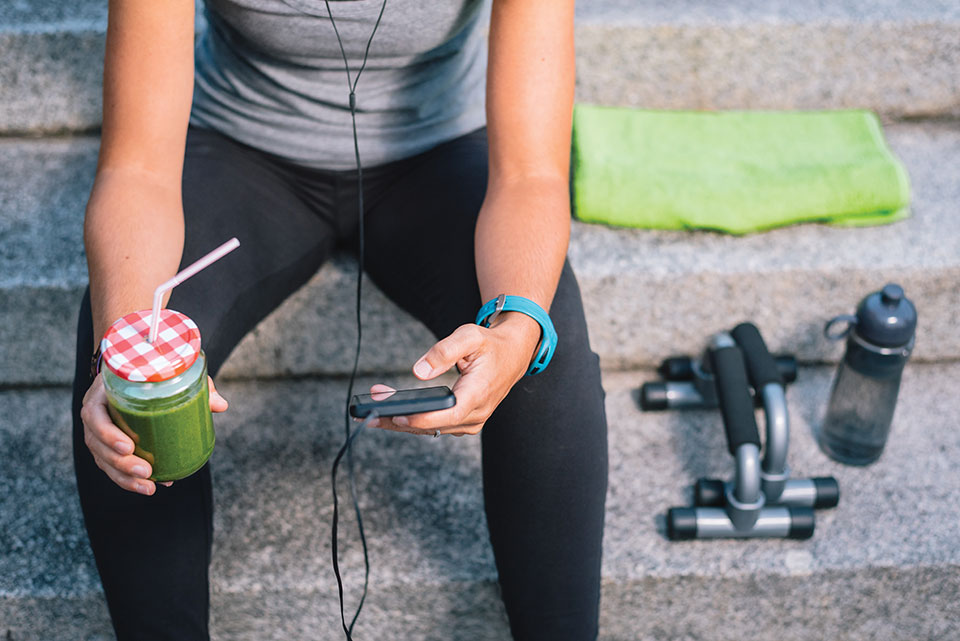Going Further With Food

Food affects everything from mood to performance. Whether you’re training for competition or working out to stay in shape, Monitoring what Goes into your body and when can help you perform to your best ability.
Ever seen a bonk in action? For those who don’t know the term, a bonk is an expression used to describe exercise induced low blood sugar levels. And it isn’t pretty. I learned the hard way that it can almost ruin friendships.
It was last year during the WEDU Texas 100 bike ride with my friend Tammy. Conditions were miserable with intermittent rain all day, including a hail storm at mile 80. Violent, but quick, Mother Nature’s burst of fury left me cold, chilled, and “hangry.” Because of the rain, I hadn’t been eating or drinking nearly enough food, and I was coming to a humiliating halt. At Mile 90, I stopped, self-defeated and grumpy. Tammy tried to encourage me, but the words that came out of my mouth in the moment are unforgivable to this day. I was in the middle of a category five bonk. My tank was empty, and my subsequent behavior was akin to Reagan from “The Exorcist.”

Food and hydration intake, or lack thereof, has an enormous impact on mood, productivity, and performance. It’s no revelation that a diet filled with sugary foods, candy, soda, and too many starchy carbs can send your brain and body on a roller coaster of confusion. You’ll have an initial spike of energy, but the subsequent crash will likely send you on another quest of sugary stimulants later in the day in order to wake up again. Similarly, a diet high in saturated fats and greasy, processed foods also leads to increased fatigue, feelings of depression, and foggy brain.
Performance in work, sport, and life decline with prolonged dependence on these types of foods. If you’re serious about enhancing your performance, becoming a self-advocate of smart food and lifestyle choices is essential.
Mood follows action.
The more you move your body, the better you feel. In order to create action, or performance, you need proper fuel and a foundation of simple healthy habits.
Dr. John Ivy, Professor Emeritus from University of Texas in the Department of Kinesiology and Health Education and Executive Director of Sport and Nutrition Research for HumanN, provides this framework.
“We perform better when we feel better and food provides the energy that drives our exercise,” Ivy says. “It also provides the nutrients, vitamins, and minerals that are required for all systems of the body to function at their best.”
He recommends everyone should start first with a solid nutrition plan, and then supplement accordingly with the type of workout you are planning on doing.

Food timing is everything.
Remember when your mom wouldn’t let you get into the swimming pool right after you ate a big meal? Perhaps she was onto something as timing of fueling and exercise is crucial to optimal performance (or fun in the pool).
There are certain things you can do before you work-out to raise your awareness and focus to best prepare you for the exercise or physical activity you’re about to do.
“You should start by having some nutrients no further than four hours away from your training to help support the activity,” Ivy recommends. “You also want to increase your body’s nitrate levels by taking in high-nitrate foods like spinach, kale, arugula, or beets.”
Nitrates improve muscle blood flow, as well as improve oxygen and nutrient delivery to muscle. They also increase your exercise economy, which means you’ll be using less energy per amount of work.
If you exercise first thing in the morning, consider a nitrate supplement, like Beet Elite. You can take this about one hour before exercise. This, combined with a light caffeine stimulant like coffee, will increase and sustain your mental focus throughout the workout.
Proper fueling prior to training is important, but Ivy also emphasizes the importance of post-workout fueling.
“For an athlete, breakfast is the most important meal of the day,” he stresses, “but the second most important meal is what you eat post-exercise. This affects recovery time, how much muscle damage is going to occur, and the rate of training adaptation.”
For an endurance athlete, Dr. Ivy recommends food or drink with a 3-4:1 Carb ratio carb to protein ratio within about 30 minutes of exercise. Low-fat chocolate milk is on his recommended list for this ratio. If you’re dairy-free, you can consider whole foods alternatives like a peanut butter sandwich, turkey with an apple, hummus on toast, or other nutritious whole food combinations.
If you are doing more strength and resistance training, Ivy says a 1:1 carb to protein ratio is where you should aim. While these days there is a heavy emphasis on protein, the addition of post-workout carbohydrate activates protein synthesis and blocks protein breakdown because it raises insulin levels. This leads to greater adaptation, and a more rapid increase in fat loss, muscle mass, and strength.

Create lifestyle habits that facilitate good mood and performance.
“Have a schedule and stick to it,” Ivy says.
It sounds simple, but having a set schedule for sleep, training, meals, and supplements can alleviate anxiety and stressful fluctuations around food and fueling.
Eat Regularly.
Eating breakfast wakes up the brain and prevents morning drowsiness. Plus, eating on a regular basis helps to stabilize blood sugar and mood, maintain alertness, and increase energy levels.
Stay Hydrated.
Make sure you drink water prior to exercise and throughout the day in order to stay hydrated. This, too, can boost mood and energy while staving off unnecessary hunger signals.
Eat a Variety of Nutrient-Rich Foods.
Seek out foods with nutrients like iron, folate, and magnesium. Consuming a rainbow of fruits and vegetables, along with consumption of omega-3 and 6 fatty acids can positively affect how you feel and behave, your attentiveness, and your sleep.
Have healthy options readily available.
This doesn’t necessarily mean you have to meal-prep for hours every week (although this works great for some). Just instill a habit of carrying fruit, nuts, and other readily available snacks with you consistently.
If you are what you eat, what do you want to be? I’d rather be a hearty spinach salad than a greasy cheeseburger any day.






